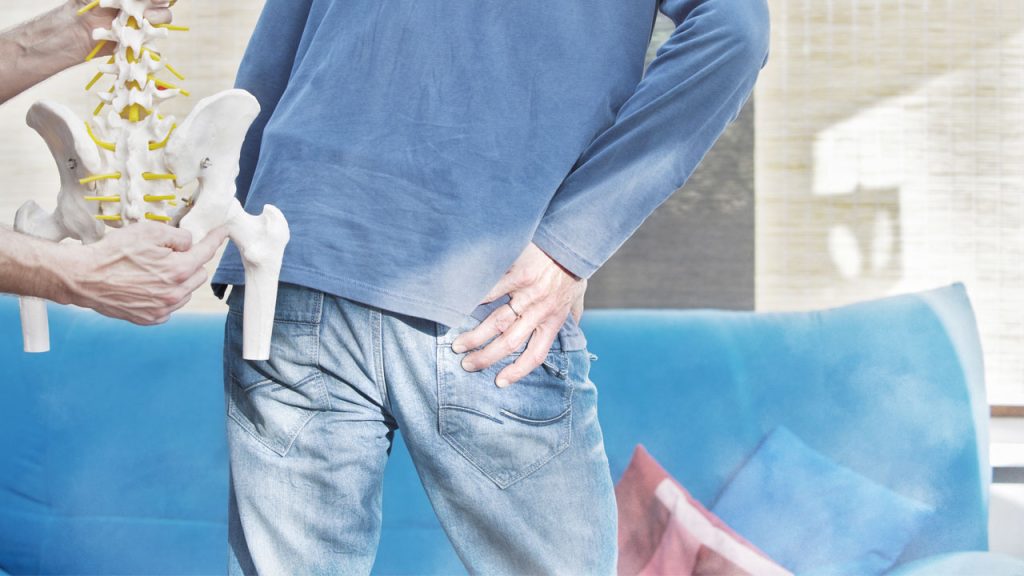
FEMORAL ACETABULAR IMPINGEMENT (FAI)
What is FAI?
Femoral Acetabular Impingement (FAI) is referred to as a motion-related disorder involving premature contact of the hip socket (acetabulum) and the thigh bone (femur). FAI comes in three types, including:
- Cam: Wider Femoral Neck
- Pincer: Deeper hip socket
- A combination of the above
Signs and Symptoms
A patient will usually be experienced deep around the hip or referring into the groin. Typically, patients will report stiffness, locking/ catching and pain in deep hip flexion (knee upwards towards torso). Commonly issues are reported in kicking and change of direction-based sports. FAI is therefore very common in soccer, hockey, and AFL. Alternatively, this is often a complaint seen in dancers. Interestingly FAI can also be reg
Treatment
FAI is often complex, and treatment is never a one-size-fits-all. It is important to note that FAI can be reported on imaging in patients without symptoms and therefore its presence is not a life sentence. Therefore conservative (non-surgical) approaches are often the first line of action.
The goal of treatment is to typically improve the mobility of the hip and spine and strengthen the musculature around the hip joint. This then enhances how we load the hip and as a result reduces symptoms.
Conservative Treatment Options
Your physio will utilise a variety of treatment approaches to help get you back to where you need to be. These are discussed below:
- Education: This will be a foundation of treatment for all conditions. It is important to understand what is going on and the more you know about the condition, the better capacity you have to self-manage symptoms long-term.
- Mobility: Improving the mobility of the spine and hips improves how we load the hip joint in the first place. Things like static and dynamic stretches and foam rolling are often recommended based on symptoms
- Strengthening: The cornerstone to rehabilitation. This includes strengthening the hips, core and general lower limb strength.
- Manual Therapy: Decreasing muscle tightness can help manage symptoms and keep us moving well. This can include massage, assisted stretching and joint mobilisations.
- Load Monitoring: Managing how much we are doing and what we are doing can help assist in a gradual introduction back to full capacity. This is critical to ensure we are adequately loading the hip but also not overcooking it also.
So Can I Still Train and Play?
Unfortunately, this is a case-by-case scenario and not one we can answer simply here. Typically, the goal is to de-load the hip and gradually build it back up. This is very dependent and highly specific given patient goals, time of season etc.
If a de-load is not necessary or possible (i.e coming into finals) the goal is to keep and manage symptoms comfortable under a 3/10 during and after training/ play. If in the offseason, it may be recommended to reduce training load before building back up gradually.
What if Conservative Treatment Doesn’t Work?
As stated, there is never a one size fits all. Usually if symptoms are debilitating or persist with six months of structured rehab, other interventions are explored. Usually the next step is investigation by a sports doctor for a cortisone injection to settle symptoms. If results are minimal then an orthopaedic review is recommended. Here they will assess and determine whether a hip arthroscope (clean out) is required. If symptoms are manageable, it is often recommended to do this in the offseason to limit a loss in game time.
The Bottom Line
FAI causes “impingement’ like symptoms deep with the hip/ around the groin. It’s presentation is multifactorial and findings can be present on scan (incidental) without symptoms (and therefore not important). Physio is often regarded as the first line of attack and is focused around addressing the mobility and strength of the hip. There is a category of people who will have ongoing issues and therefore further opinion following 3-6 months is typically recommended.
 Helping the Central Coast Feel Well, Move Well and Perform Well!
Helping the Central Coast Feel Well, Move Well and Perform Well!